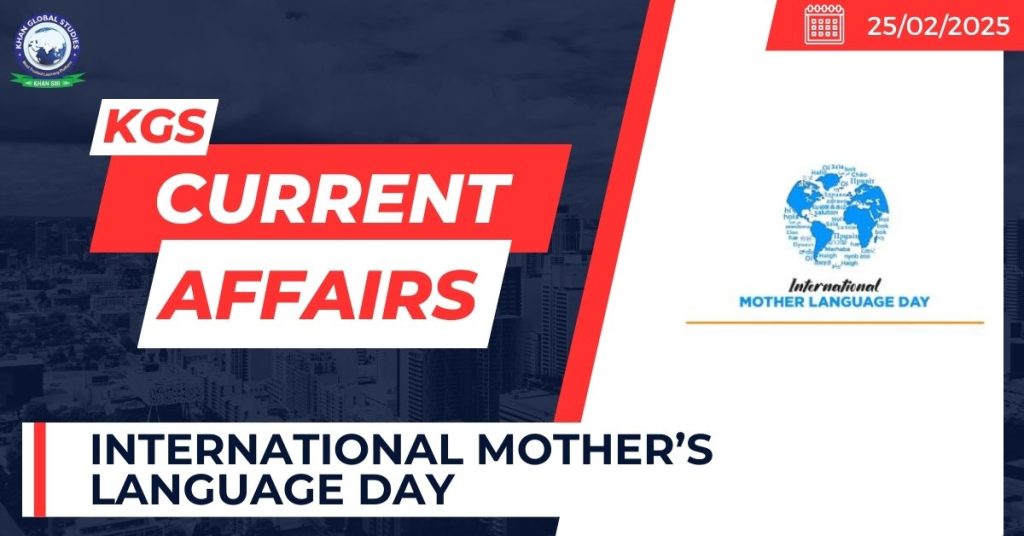Context: Recently, the UN celebrated the 25th anniversary of International Mother Language Day, marking a quarter-century of dedicated efforts to preserve linguistic diversity and promote the use of mother tongues.
Theme: Silver Jubilee Celebration of International Mother Language Day (2025).

- International Mother Language Day was first proclaimed by UNESCO and later adopted by the UN General Assembly.
- The day highlights the role of languages in promoting inclusion and achieving Sustainable Development Goals (SDGs).
- Multilingual education promotes inclusive societies and helps preserve non-dominant, minority, and indigenous languages.
- It is essential for achieving equitable access to education and lifelong learning opportunities for all individuals.
Significance and Celebrations
- Languages are vital for education, sustainable development, and cultural preservation.
- There are 8,324 languages worldwide, many of which are at risk due to globalization and societal changes.
- Education in one’s mother tongue improves learning outcomes, comprehension, engagement, and critical thinking.
- International Mother Language Day highlights the importance of linguistic heritage and cultural identity.
- The day serves as a global reminder to protect and promote languages at risk of disappearing.
- It fosters respect for multilingualism and cultural diversity.
- Various events and activities are held worldwide to engage communities in discussions, workshops, and performances.
- These events celebrate unique languages and raise awareness about the need to protect them.

